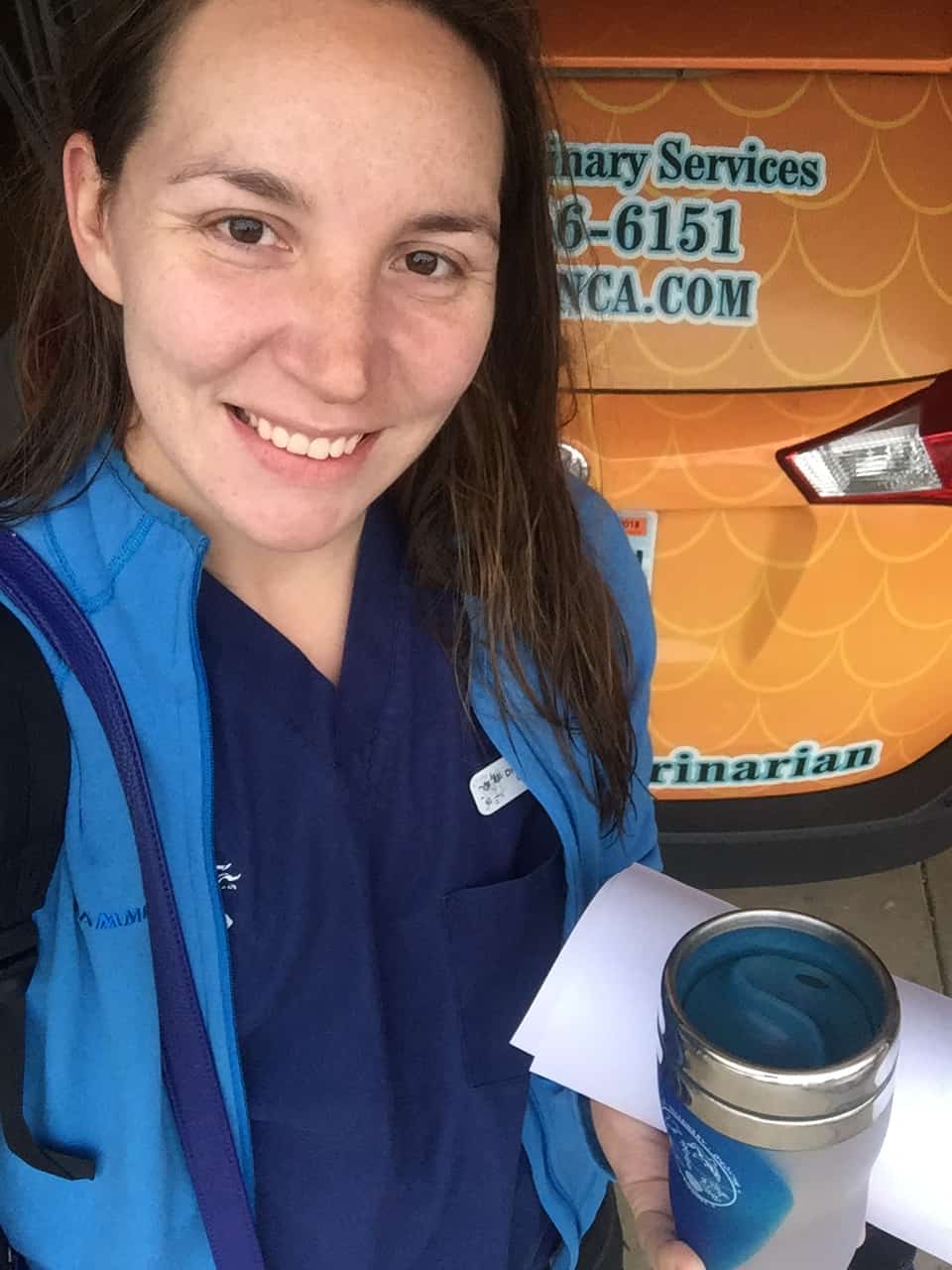Interested in becoming an aquatic veterinarian? Get ready to study hard and get wet!
One of the most common questions I get as an aquatic veterinarian is, “how did you end up in this field?” Well, I got my start very early. I was one of those annoying kids who always knew I wanted to be a veterinarian. (For more info on my background, check out our “Why a Fish Vet” post). To be a veterinarian, you have a very stringent list of events that must occur.
One of our very first patients
1. You MUST get good grades in undergrad.
2. You MUST go to veterinary school.
3. You MUST find a job as a vet.
And that’s it. That’s how you become a veterinarian.
But what about an aquatic veterinarian? Is there a protocol for that? Well, if you want to be an aquarium veterinarian or work with mammals, there are a few extra steps.
4. Intern for 1 year in small or large animal medicine and surgery.
5. Intern for 1 year in an aquarium or zoo.
6. Receive one of the rare residencies in aquarium/zoo medicine and spend 3 years working.
7. Sit for and PASS the board certification in zoological veterinary medicine.

Again, a very straight forward process, but you MUST stand out among numerous applicants. If not, you’ll miss a step and then be out of luck.
And then there’s my little niche: private practice. Any veterinarian can go into private practice the day after they graduate veterinary school. This is very different from medical school where all students must specialize in some field. My sister went from medical school to a general surgery residency and is almost to her 5th and final year. But veterinarians can go straight to seeing patients without any additional training. Most students will do at least a one year internship to build up their confidence, and a majority of my veterinary class did just that. I, however, did not. I moved to California to get a taste of something other than New England living and started looking for a “normal” veterinary job. I figured I could build up someone else’s practice by adding my fish services to their own. Well, 6 months later after a few interviews and one very sad job offer, I started considering what to do next. I knew there was a lot of fish in the area and I had potentially unlimited clients since NO ONE saw fish unless you drove them to Davis. So, I found a bank, lawyer, accountant, applied for the proper licenses and started figuring out what to do. In doing basically what no other veterinarian had successfully done before, I am hopefully making it significantly easier for the next person to follow my lead. Learn from my mistakes!! I’ve made many in the last 5 years and will continue to do so. I know that in following a career path with no blueprint, I will stumble, I will fail spectacularly, and I will learn what not to do.

So here are the steps to becoming a fish vet:
- Get good grades in undergrad. Maybe try a major other than veterinary science or biology. (I had a B.S. in Marine Biology and minors in Computer Science and General Business. A GPA of 3.59 and graduated with honors magna cum laude.)
- Go to veterinary school. (I still think the only reason I got into Tufts is because I was the one weird fish kid. Diversity is your friend! Don’t be afraid to be weird!)
- Learn something about fish before you graduate. (A lot of veterinary programs do not teach much about fish. Tufts had two afternoon lectures, the second of which I skipped because I was so BORED!! You can get more fish learning in summer programs like AQUAVET and MARVET. Or just go to a school with an awesome fish program.)
- Start working with animals. (When you interview, tell your potential employer that you can bring in more clients by adding fish! It only takes a few extra supplies.)
- If no one wants to hire you, go to work anyway. (Don’t let your education go to waste! There are lots of fishy positions open in education, regulatory and government agencies. Be creative! Start your own private veterinary practice like I did. It is scary but worth it.)
- DON’T EVER GIVE UP.
